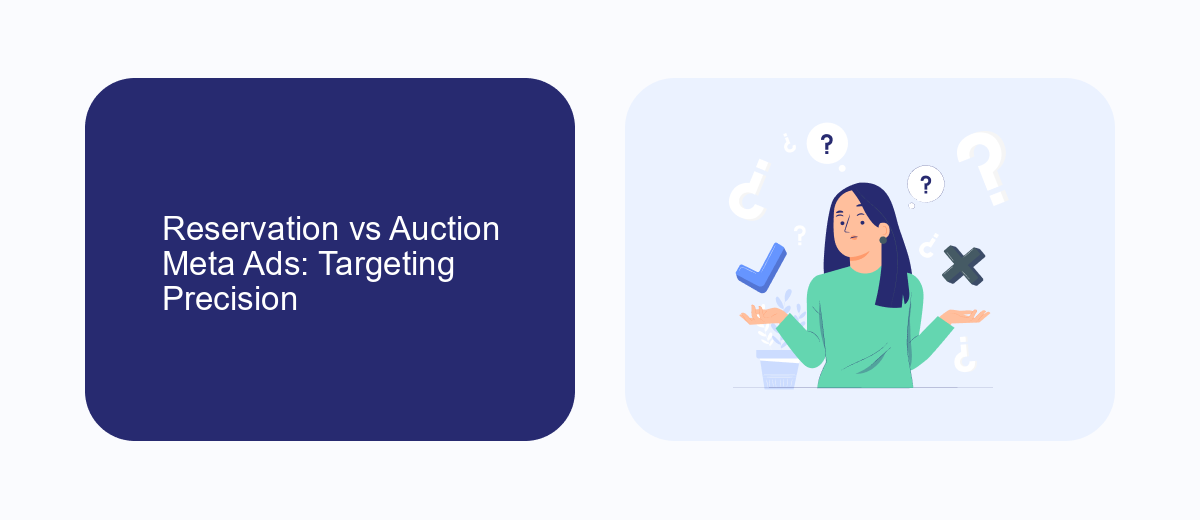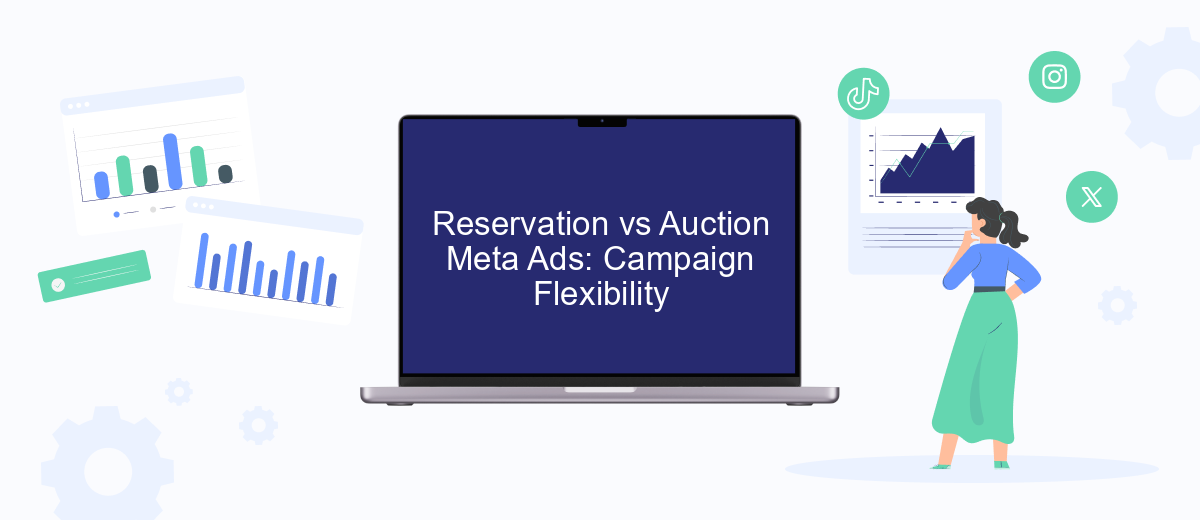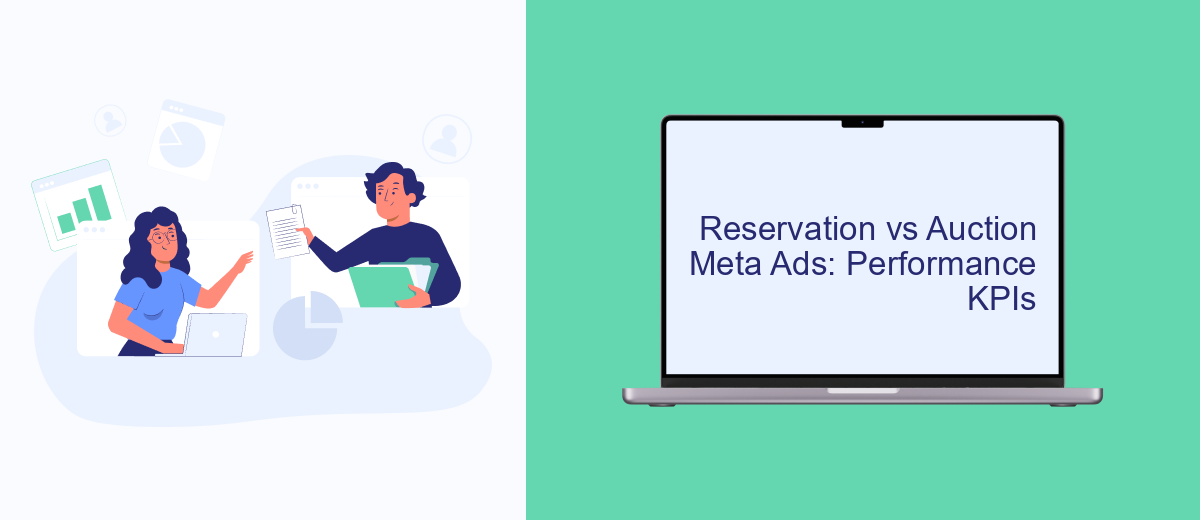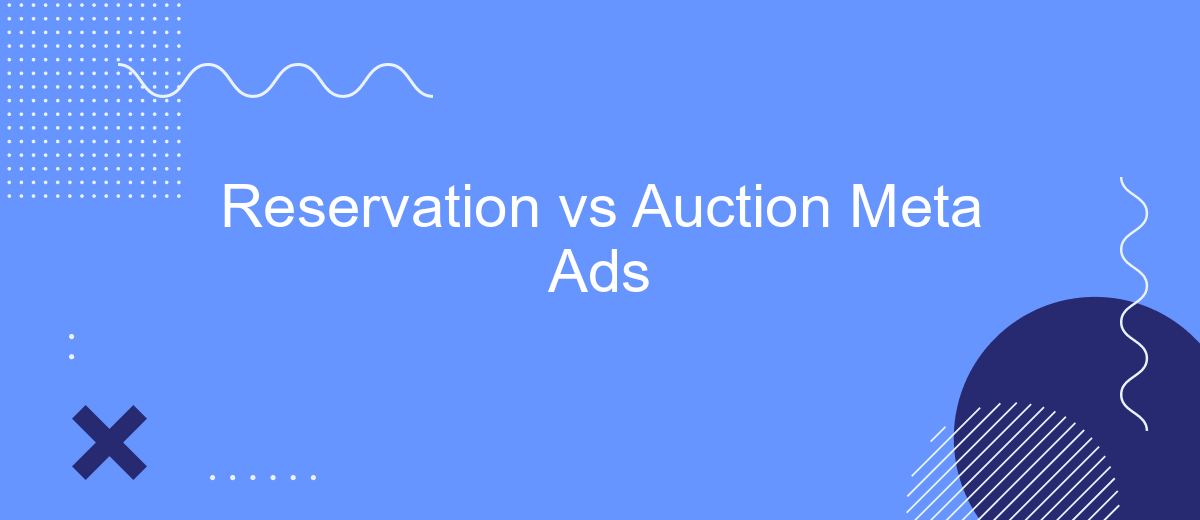In the dynamic world of digital advertising, businesses are constantly exploring effective strategies to maximize their reach and impact. Two prominent approaches in this realm are reservation and auction-based meta ads. This article delves into the nuances of these methods, comparing their advantages and limitations, and provides insights into how advertisers can strategically leverage them to achieve optimal results in their campaigns.
Reservation vs Auction Meta Ads: Cost Efficiency
When considering the cost efficiency of Reservation versus Auction Meta Ads, businesses must evaluate their advertising goals and budget constraints. Reservation ads offer a fixed cost model, allowing advertisers to secure ad placements in advance at a predetermined price. This can be beneficial for companies seeking predictability and stability in their advertising expenses, as it eliminates the uncertainty of fluctuating auction prices.
- Reservation ads provide a guaranteed ad spot, ensuring visibility during high-traffic periods.
- Auction ads follow a bidding process, which can lead to competitive pricing but also potential cost savings if demand is low.
- Reservation models often require a higher upfront investment, whereas auction models allow for more flexible budgeting.
Ultimately, the choice between Reservation and Auction Meta Ads depends on the advertiser's strategic priorities. Those with a fixed budget and a need for consistent exposure might prefer the predictability of reservation ads. In contrast, businesses looking to optimize their ad spend and willing to navigate market dynamics may benefit from the flexibility and potential cost savings of auction-based advertising. Balancing these factors is key to achieving optimal cost efficiency in digital advertising campaigns.
Reservation vs Auction Meta Ads: Targeting Precision

In the realm of digital advertising, precision targeting is crucial for maximizing ROI and reaching the desired audience effectively. Reservation Meta Ads allow advertisers to secure ad placements in advance, offering a more predictable reach and frequency. This approach is ideal for campaigns with specific timing or branding objectives, as it provides guaranteed impressions and a stable CPM. However, the targeting precision may be limited compared to auction-based systems, as the focus is more on securing space rather than dynamically optimizing for the best audience match.
Conversely, Auction Meta Ads operate in a real-time bidding environment, offering enhanced targeting precision through dynamic audience insights and data-driven decision-making. This model enables advertisers to reach users most likely to engage with their content, adjusting bids based on real-time analytics. Integration services like SaveMyLeads can further enhance targeting precision by automating data collection and audience segmentation, ensuring that the right message reaches the right audience at the right time. While auction ads offer flexibility and precision, they may also lead to fluctuating costs and competition for premium ad placements.
Reservation vs Auction Meta Ads: Campaign Flexibility

When it comes to digital advertising, flexibility is a crucial factor that can significantly impact the effectiveness of a campaign. Reservation and auction-based Meta Ads each offer distinct advantages in terms of campaign flexibility. Understanding these differences can help advertisers choose the best strategy for their specific needs.
- Reservation Ads: These ads provide a guaranteed placement and predictable costs, making them ideal for campaigns with a fixed budget and timeline. However, they offer limited flexibility in terms of changes and optimizations once the campaign is live.
- Auction Ads: Offering greater flexibility, auction ads allow advertisers to adjust bids, target audiences, and creative content in real-time. This adaptability can be beneficial for campaigns that need to respond quickly to market changes or performance insights.
Ultimately, the choice between reservation and auction Meta Ads depends on the specific goals and constraints of a campaign. While reservation ads offer stability and predictability, auction ads provide the flexibility needed to optimize and adapt strategies on the fly. Advertisers must weigh these factors carefully to maximize their campaign's potential and achieve their desired outcomes.
Reservation vs Auction Meta Ads: Performance KPIs

When evaluating Reservation versus Auction Meta Ads, it's crucial to consider the performance KPIs that define the effectiveness of each method. Reservation Meta Ads offer guaranteed impressions at a fixed price, ensuring predictability in ad delivery. This method is particularly beneficial for campaigns that require a consistent presence over a specific period.
On the other hand, Auction Meta Ads operate on a dynamic bidding system, where ad placements are determined by competitive bidding. This approach allows advertisers to optimize their budget in real-time, potentially achieving higher engagement rates with a flexible spend.
- Cost Efficiency: Reservation ads provide fixed costs, while auction ads can fluctuate based on demand.
- Reach and Frequency: Reservation ensures consistent reach, whereas auction can vary based on bid success.
- Engagement Rates: Auction ads may offer higher engagement through targeted bidding strategies.
- Budget Flexibility: Auction allows for more adaptable budget management compared to reservation.
Ultimately, the choice between Reservation and Auction Meta Ads depends on the campaign's specific goals and budget constraints. Advertisers must weigh the benefits of predictability against the potential for dynamic engagement to determine the most effective strategy.
Reservation vs Auction Meta Ads: Use Cases
Reservation Meta Ads are ideal for businesses seeking guaranteed ad placements and consistent reach. This approach is particularly beneficial for large-scale campaigns where predictability and control over ad delivery are crucial. For instance, companies launching new products or services can utilize reservation ads to ensure their message reaches a specific audience at a predetermined time. This method allows advertisers to plan their budget and strategy with certainty, minimizing the risk of fluctuating costs and ensuring their ads are seen by the intended audience.
On the other hand, Auction Meta Ads provide flexibility and cost-efficiency, making them suitable for businesses with varying budget sizes. This model allows advertisers to bid for ad space, potentially reducing costs while maximizing reach. It's particularly advantageous for businesses looking to optimize their ad spend based on real-time performance data. For those integrating different marketing platforms, services like SaveMyLeads can streamline the process by automating data transfers and ensuring seamless communication between platforms, enhancing the effectiveness of auction-based strategies. This integration facilitates better decision-making and enhances the overall efficiency of advertising campaigns.
FAQ
What is the difference between Reservation and Auction in Meta Ads?
How do I decide between using Reservation or Auction for my campaign?
Can I use both Reservation and Auction strategies in a single campaign?
What are the advantages of using Reservation ads?
How can I automate and integrate my ad campaigns more efficiently?
What do you do with the data you get from Facebook lead forms? Do you send them to the manager, add them to mailing services, transfer them to the CRM system, use them to implement feedback? Automate all of these processes with the SaveMyLeads online connector. Create integrations so that new Facebook leads are automatically transferred to instant messengers, mailing services, task managers and other tools. Save yourself and your company's employees from routine work.
